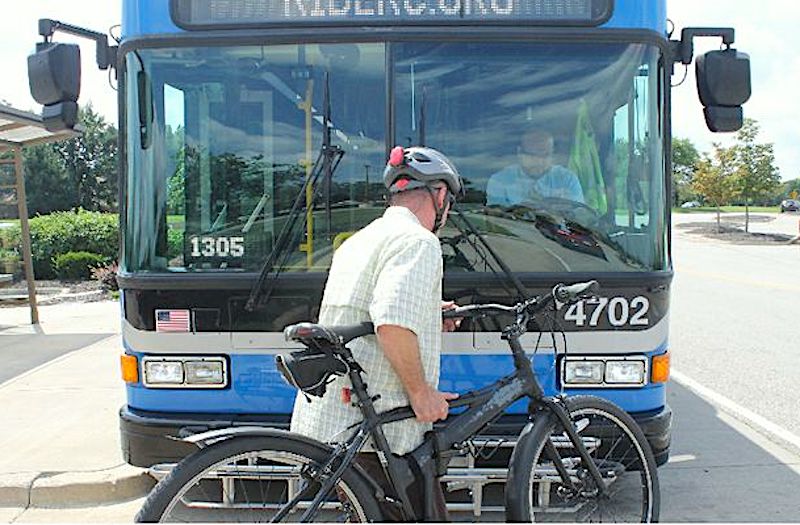Join Kansas City’s effort to improve air quality while you reduce your fuel costs during the Green Commute Challenge. Ride a bus, streetcar, scooter or bike – or carpool, walk or telecommute to work.
The Green Commute Challenge encourages workplaces to form an employee team and find alternatives to driving for daily work commutes. Individuals can also register, and everyone is eligible for prizes.
This friendly competition kicks off Monday, September 19 and runs through Friday, October 28, with weekly prizes for those who log the most points by reducing their emissions. The challenge is designed to improve air quality by reducing the number of cars on the road.
“With so much collective interest in sustainability, climate action and, not to mention gas prices, there’s never been a better time to switch up your commute,” said Rachel Krause, RideshareKC outreach coordinator.
Throughout the challenge, participants log commuter trips using alternative transportation modes such as biking, walking, scooter, carpool, vanpool, transit or teleworking. Those trips earn points for their team and enter them into drawings to win prizes from many local businesses. Employers and residents in the Kansas City region are eligible to join the challenge.
Greener commutes can have many positive impacts on the region, including:
- Reduced harmful emissions — During the warmer months of the year, from March 1 through October 31, the Kansas City region is more likely to experience ozone pollution, which occurs when emissions from cars, trucks and other sources interact with heat and sunlight. Ozone pollution is harmful for everyone to breathe, especially children and people with respiratory problems, such as asthma or emphysema.
- Health benefits — In addition to contributing to better air quality, commuters who use sustainable transportation can gain health benefits from reduced stress and increased physical activity. Commuters can also save money on gas and vehicle expenses.
- Lessen impacts of climate change — As outlined in the Kansas City Regional Climate Action Plan, reductions in the amount of travel and the use of fuel sources that produce fewer greenhouse gas emissions are ways to reduce the impact of the transportation sector on climate change.
“Being a green commuter doesn’t have to be an all-or-nothing endeavor,” Krause said. “You can start with one or two days of carpooling, biking or riding transit to work. Can you walk or ride a scooter to a meeting instead of driving? If childcare or school drop-off is a regular part of your day, try parking your car near your children’s school or daycare and bike or ride the bus to work from there. Even small changes can have a big impact on your individual wellbeing and our regional air quality and traffic.”
During 2021’s challenge, 20 teams and 260 participants logged 34,741 trips, saving a total of 51,266 pounds of carbon dioxide emissions, 1,514 gallons of fuel and $6,246 of gas money.
RideshareKC is a program of the Mid-America Regional Council (MARC). Learn more and register at RideshareKC.org.
